We may not have the course you’re looking for. If you enquire or give us a call on +44 1344 203 999 and speak to our training experts, we may still be able to help with your training requirements.
Training Outcomes Within Your Budget!
We ensure quality, budget-alignment, and timely delivery by our expert instructors.

Today’s world is an expanding competitive business sphere, and organisations across diverse sectors work relentlessly to strike the delicate balance between increased efficiency, reduced costs, and improved quality. This is where Six Sigma emerges as a career-boosting powerhouse shaping industry leaders.
From manufacturing floors to corporate boardrooms, this certification promises streamlined processes and higher profits. But how does it impact your paycheck? This blog uncovers the answer by delving into the exciting world of Six Sigma Salary trends. So read on and learn how this credential can turbocharge your earning potential.
Table of Contents
1) What is Six Sigma?
2) Six Sigma Salary Depending on Various Factors
a) Six Sigma Salary Depending on Experience
b) Six Sigma Salary Depending on Location
c) Six Sigma Salary Depending on Certifications
d) Six Sigma Salary Depending on Company
3) Why Six Sigma Belt Level Matters?
4) Conclusion
What is Six Sigma?
Six Sigma is a data-driven methodology aimed at improving business processes by reducing defects and variations. Originally created by Motorola in the 1980s, Six Sigma has since become a widely adopted approach in diverse industries, including manufacturing, finance, healthcare, and technology.
Six Sigma is a data-driven methodology aimed at improving business processes by reducing defects and variations. Originally created by Motorola in the 1980s, Six Sigma has since become a widely adopted approach in diverse industries, including manufacturing, finance, healthcare, and technology.
Six Sigma Salary Depending on Various Factors
Salaries in the Six Sigma landscape can vary significantly based on several factors. This includes experience, location, certifications, and the employing company. Let’s dive deeper into each factor:
1) Six Sigma Salary Depending on Experience
Experience plays a crucial role in determining Six Sigma salaries. According to Salary.com, those who earn their Green Belt Six Sigma Certification can earn a Six Sigma Green Belt salary between £70,160 to £ 91,370 annually. However, as expertise is gained and move up the ranks, salaries too, increase substantially.
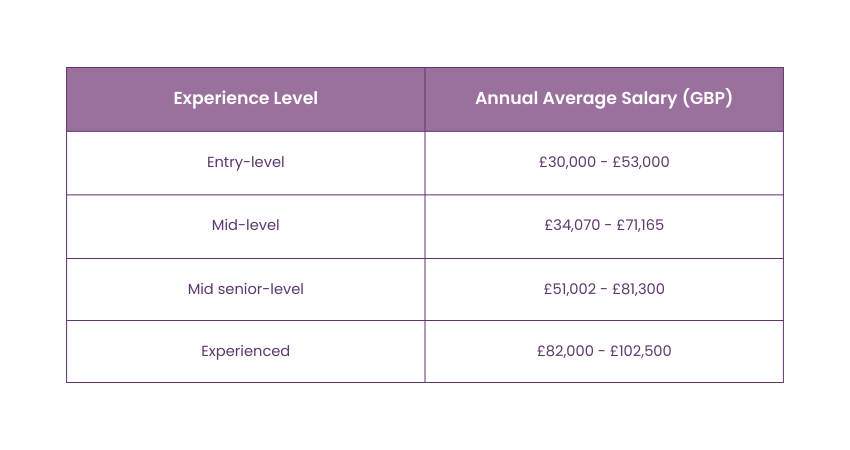
Source: Glassdoor
2) Six Sigma Salary Depending on Location
Location is another key factor influencing Six Sigma salaries. In regions with a higher cost of living or strong demand for Six Sigma professionals, salaries tend to be higher. For instance, professionals working in major metropolitan areas like London may earn significantly more than those in smaller cities or rural areas.
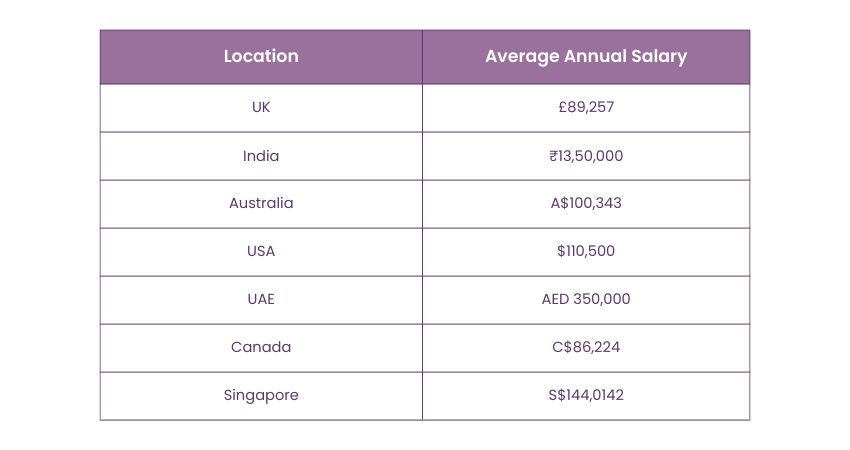
Source: Glassdoor
3) Six Sigma Salary Depending on Certifications
Certifications do impact Six Sigma salaries. A fundamental understanding of Six Sigma principles will suffice for entry-level positions. However, an advanced certifications like Six Sigma Black Belt or Master Black Belt can enhance earning potential significantly. Professionals with these certificates often command higher salaries. It is due to their specialised skills and ability to lead complex improvement projects.
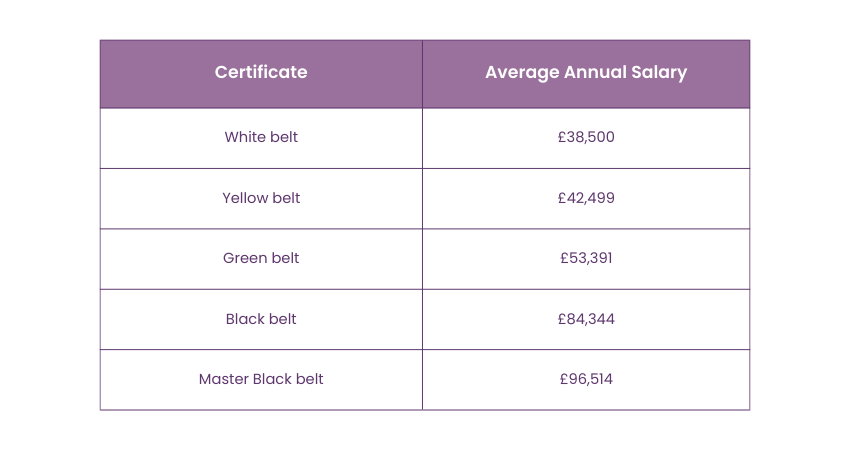
Source: Glassdoor
Our Six Sigma Master Black Belt Certification Course is simply top-notch! Hurry and register to stand apart from the crowd.
4) Six Sigma Salary depending on Company
The size and industry of the employing company can influence Six Sigma salaries as well. Large corporations with robust Six Sigma programs and a strong commitment to process improvement may offer higher salaries and better career advancement opportunities. Additionally, industries with a high demand for quality and efficiency, such as healthcare, aerospace, or automotive manufacturing, often pay competitive salaries to Six Sigma professionals.
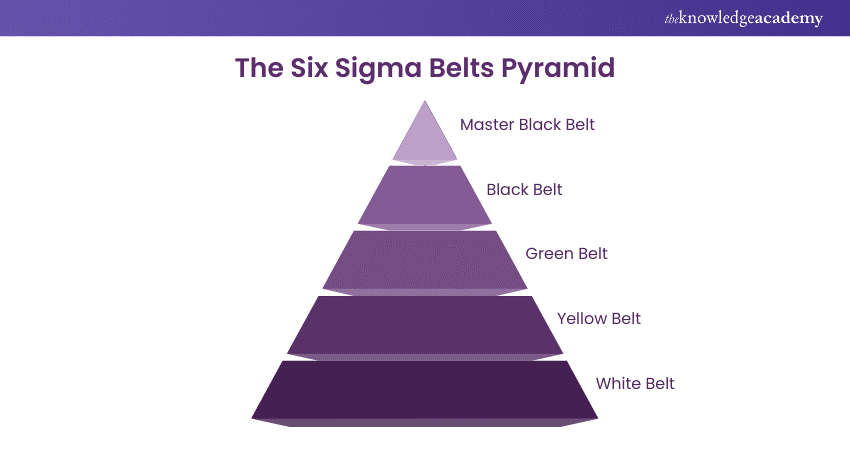
Why Six Sigma Belt Level Matters?
In the world of Six Sigma, different belt levels carry different levels of expertise and responsibility. While Green Belts and Yellow Belts focus on executing projects and supporting improvement initiatives, Black Belts and Master Black Belts lead and mentor teams, drive strategic initiatives, and oversee the implementation of Six Sigma methodologies.
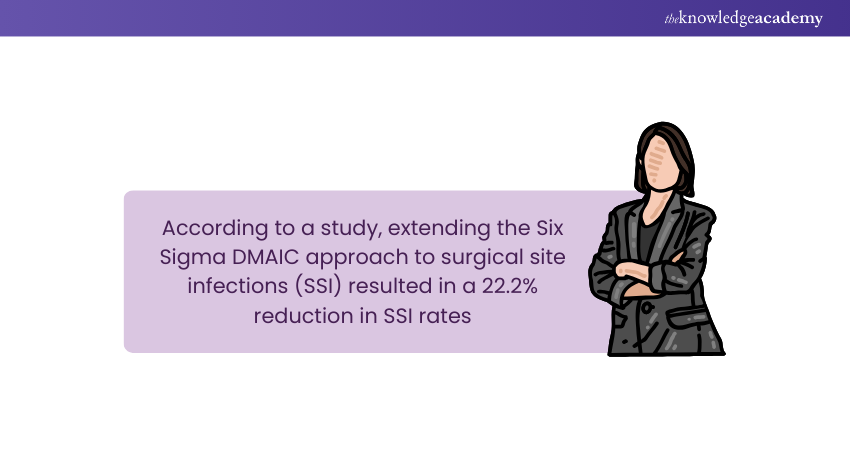
As a result, the belt level is directly proportional with salary levels. With higher belt levels typically command higher compensation due to their advanced skills and leadership capabilities.
Gain expertise on Six Sigma Yellow Belt Course along with course material, exercises, exam, and certificate – join today!
Conclusion
In conclusion, Six Sigma Salary Trends across different sectors vary widely due to several factors. This includes experience, location, certifications, and the company. Professionals who have higher levels of experience and advanced certificates often acquire higher salaries, especially in regions with a high cost of living. Moreover, the belt level within Six Sigma indicates different levels of expertise and responsibility.
Hoist your professional standing with Six Sigma Certification Course – join now!
Frequently Asked Questions

Yes, Six Sigma is still in demand. Many companies continue to use Six Sigma and Lean Six Sigma to elevate processes, reduce errors, and optimise performance.

Yes, Six Sigma can be considered a hard skill as it involves technical abilities and knowledge, including statistical analysis, data interpretation, and process improvement techniques.

The Knowledge Academy takes global learning to new heights, offering over 30,000 online courses across 490+ locations in 220 countries. This expansive reach ensures accessibility and convenience for learners worldwide.
Alongside our diverse Online Course Catalogue, encompassing 17 major categories, we go the extra mile by providing a plethora of free educational Online Resources like News updates, Blogs, videos, webinars, and interview questions. Tailoring learning experiences further, professionals can maximise value with customisable Course Bundles of TKA.

The Knowledge Academy’s Knowledge Pass, a prepaid voucher, adds another layer of flexibility, allowing course bookings over a 12-month period. Join us on a journey where education knows no bounds.

The Knowledge Academy offers various Six Sigma Certification Courses, the Six Sigma Green Belt Training, the Six Sigma Master Black Belt Course and the Six Sigma Master Black Belt Course. These courses cater to different skill levels, providing comprehensive insights into Six Sigma Project Ideas.
Our Business Improvement Blogs cover a range of topics related to Business Improvement Skills, offering valuable resources, best practices, and industry insights. Whether you are a beginner or looking to advance your skills in Business Improvement, The Knowledge Academy's diverse courses and informative blogs have you covered.







 Top Rated Course
Top Rated Course




 If you wish to make any changes to your course, please
If you wish to make any changes to your course, please


